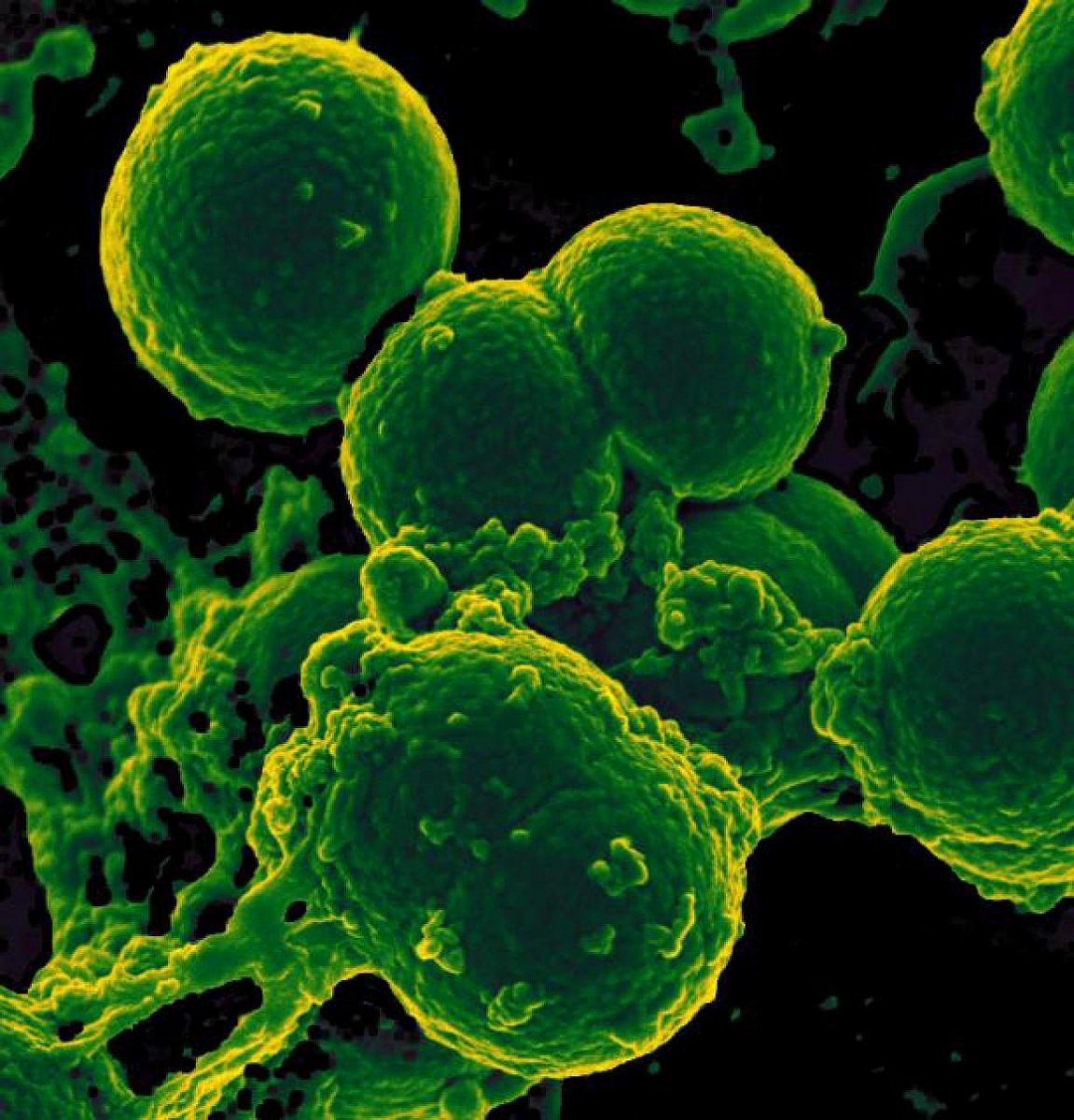antimicrobial resistance
See the following -
Experts Warn Of Antimicrobial Resistance, Additional Threats To National Biosecurity
 Dr. Asha George...was among a panel of experts testifying about the state of U.S. preparedness for biological attacks and infectious disease pandemics. The experts agreed that a range of factors affect our country's ability to fight these threats, including weakened or fragmented federal oversight, limited incentives for research and development, and a lack of preparedness at the local level to protect vulnerable populations. "In short, the nation is not prepared for biological outbreaks, acts of bioterrorism, biological warfare of accidental releases with catastrophic consequences," George said. "We are talking about catastrophic events that affect the function of our entire society."
Dr. Asha George...was among a panel of experts testifying about the state of U.S. preparedness for biological attacks and infectious disease pandemics. The experts agreed that a range of factors affect our country's ability to fight these threats, including weakened or fragmented federal oversight, limited incentives for research and development, and a lack of preparedness at the local level to protect vulnerable populations. "In short, the nation is not prepared for biological outbreaks, acts of bioterrorism, biological warfare of accidental releases with catastrophic consequences," George said. "We are talking about catastrophic events that affect the function of our entire society."
- Login to post comments
2 Million Reasons India Should Restrict Antibiotics
Minimum effort. Minimum expense. Maximum result. In colloquial English, that’s the mantra that guides India, a mantra that has helped it become a global centre for low-cost innovation—and kept the country addicted to slapdash, jerryrigged solutions to complex problems....
- Login to post comments
5 Health Challenges The World Will Face In 2015
What comes next for the future of the world's health?... But these are the issues reason would suggest will set the world's health agenda next year...
- Login to post comments
A Major Lesson from Ebola: Pandemics Are Strongly Driven by Inequality
 After more than a year since the Ebola pandemic appeared in West Africa, Liberia – one of the worst hit countries – has been declared free of the virus. However, the initial global response was not encouraging. Despite having the knowledge and technology needed to contain the outbreak, help was initially sluggish and poorly effective. This situation illustrates one of the major lessons from the history of pandemics: that they are strongly influenced by health inequalities. Pandemics are epidemics that spread widely and cross borders. In many respects, the world is a safer place for those concerned about these emerging infectious diseases – advances in science, particularly molecular biology, information technology, and epidemiology give us unprecedented tools for understanding, tracking and managing emerging threats...
After more than a year since the Ebola pandemic appeared in West Africa, Liberia – one of the worst hit countries – has been declared free of the virus. However, the initial global response was not encouraging. Despite having the knowledge and technology needed to contain the outbreak, help was initially sluggish and poorly effective. This situation illustrates one of the major lessons from the history of pandemics: that they are strongly influenced by health inequalities. Pandemics are epidemics that spread widely and cross borders. In many respects, the world is a safer place for those concerned about these emerging infectious diseases – advances in science, particularly molecular biology, information technology, and epidemiology give us unprecedented tools for understanding, tracking and managing emerging threats...
- Login to post comments
A New Treatment for Antibiotic Resistant Bacteria and Infectious Disease
A study, published in the American Journal of Respiratory and Critical Care Medicine, describes a new treatment pathway for antibiotic resistant bacteria and infectious diseases with benefits for patients and health care providers. Researchers from the University of Birmingham and Newcastle University found that the unusual approach of removing antibodies from the blood stream reduced the effects of chronic infections, the requirement for days spent in hospital and the use of antibiotics...
- Login to post comments
Animal Health Institute Statement On FDA Final Guidance 213
The Animal Health Institute (AHI) issued the following statement in response to the Food and Drug Administration’s publication of the final Guidance 213 and proposed VFD rule implementing the policy of extending veterinary oversight and eliminating the subtherapeutic use of medical important antibiotics in animal agriculture. Read More »
- Login to post comments
Antibiotic Resistance Rise Continues
Antibiotic prescriptions and cases of resistant bacteria in England have continued to soar despite dire warnings and campaigns, figures show...
- Login to post comments
Antibiotic-Brined Chicken amd Other Bad Ideas from US Farming
These days, the only thing more American than apple pie is eating an animal raised on antibiotics. Eighty percent of antibiotics sold in the US go not to human patients, but to the nation’s plate-bound pigs, cows, turkeys, and chickens. As these wonder drugs became a mainstay of modern agriculture, factory farms began churning out another, far less welcome commodity—antibiotic resistant bacteria. These deadly new microbial threats are expected to claim the lives of 10 million people by 2050. How did this happen? And where does it end?...
- Login to post comments
Antimicrobial Resistance Diagnostic Challenge Selects 10 Semifinalists in First Phase of Competition
 Ten semifinalists have been selected in the first phase of the Antimicrobial Resistance Diagnostic Challenge, a federal prize competition that will award up to a total of $20 million in prizes, subject to the availability of funds, for innovative rapid, point-of-need diagnostic tests to combat the emergence and spread of drug resistant bacteria. The semifinalists were selected for their concepts for a diagnostic based on a technical and programmatic evaluation from among 74 submissions. While semifinalists will each receive $50,000 to develop their concepts into prototypes, anyone can submit a prototype to compete in the second phase of the challenge to win up to $100,000...
Ten semifinalists have been selected in the first phase of the Antimicrobial Resistance Diagnostic Challenge, a federal prize competition that will award up to a total of $20 million in prizes, subject to the availability of funds, for innovative rapid, point-of-need diagnostic tests to combat the emergence and spread of drug resistant bacteria. The semifinalists were selected for their concepts for a diagnostic based on a technical and programmatic evaluation from among 74 submissions. While semifinalists will each receive $50,000 to develop their concepts into prototypes, anyone can submit a prototype to compete in the second phase of the challenge to win up to $100,000...
- Login to post comments
Bacteria’s Ability To Resist Drugs An International Issue
Global surveillance needed | Countries take action on antibiotic use...
- Login to post comments
Biodefense Takes Center Stage at House Oversight Hearing
 Is the nation ready to defend against antibiotic-resistant diseases or bioterrorism? What would the response to a biological attack or disease pandemic look like? Those threats and the collaboration of private, federal and local agencies to respond to them were the focus of a hearing Wednesday in the House Oversight Subcommittee on National Security on biodefense preparedness. Congressman Stephen Lynch, D-Mass., said at the beginning of the hearing that around 2.4 million people could die in high-income countries between 2015 and 2050 without an effort to contain antimicrobial resistance, according to an April report to the Secretary-General of the United Nations.
Is the nation ready to defend against antibiotic-resistant diseases or bioterrorism? What would the response to a biological attack or disease pandemic look like? Those threats and the collaboration of private, federal and local agencies to respond to them were the focus of a hearing Wednesday in the House Oversight Subcommittee on National Security on biodefense preparedness. Congressman Stephen Lynch, D-Mass., said at the beginning of the hearing that around 2.4 million people could die in high-income countries between 2015 and 2050 without an effort to contain antimicrobial resistance, according to an April report to the Secretary-General of the United Nations.
- Login to post comments
Enzyme Is Crucial for Combatting Antibiotic-Resistant E. Coli Infections
Research by bioscientists at the University of Kent and the University of Queensland is expected to pave the way for new approaches to kill bacteria that no longer respond to conventional antibiotics. In a paper published by Scientific Reports, Kent's Dr Mark Shepherd and colleagues demonstrate the importance of an enzyme, cytochrome bd-I, for survival of E. coli that is resistant to multiple antibiotics. E. coli causes serious conditions including sepsis, bladder infections, kidney failure, and dysentery. The human immune system produces nitric oxide to kill invading E. coli, and cytochrome bd-I is shown to provide significant resistance to nitric oxide during infection...
- Login to post comments
Factory Farms Sow Superbugs
Imagine a world where a scraped knee on a playground could have deadly complications. A world where chemotherapy and radiation are less effective cancer treatments because of increasingly common post-treatment infections, or where lifesaving drugs we regularly rely on today no longer heal people...
- Login to post comments
FDA Antimicrobial Resistance Guidelines Fail to Address Root Causes
Last December, the Food and Drug Administration (FDA) published two controversial documents on its website: Guidance 213 and the Veterinary Feed Directive (VFD). The guidelines stirred a firestorm of protests from public health offiicials who argue that the guidelines are too weak to prevent the continuing growth of antibiotic resistant germs...the crisis, as outlined by Dr. Joseph Mercola, is that we are now "facing the perfect storm to take us back to the pre-antibiotic age, when some of the most important advances in modern medicine – intensive care, organ transplants, care for premature babies, surgeries and even treatment for many common bacterial infections – will no longer be possible." Read More »
FDA Takes Significant Steps To Address Antimicrobial Resistance
The U.S. Food and Drug Administration today is implementing a plan to help phase out the use of medically important antimicrobials in food animals for food production purposes, such as to enhance growth or improve feed efficiency. The plan would also phase in veterinary oversight of the remaining appropriate therapeutic uses of such drugs. Read More »
- Login to post comments